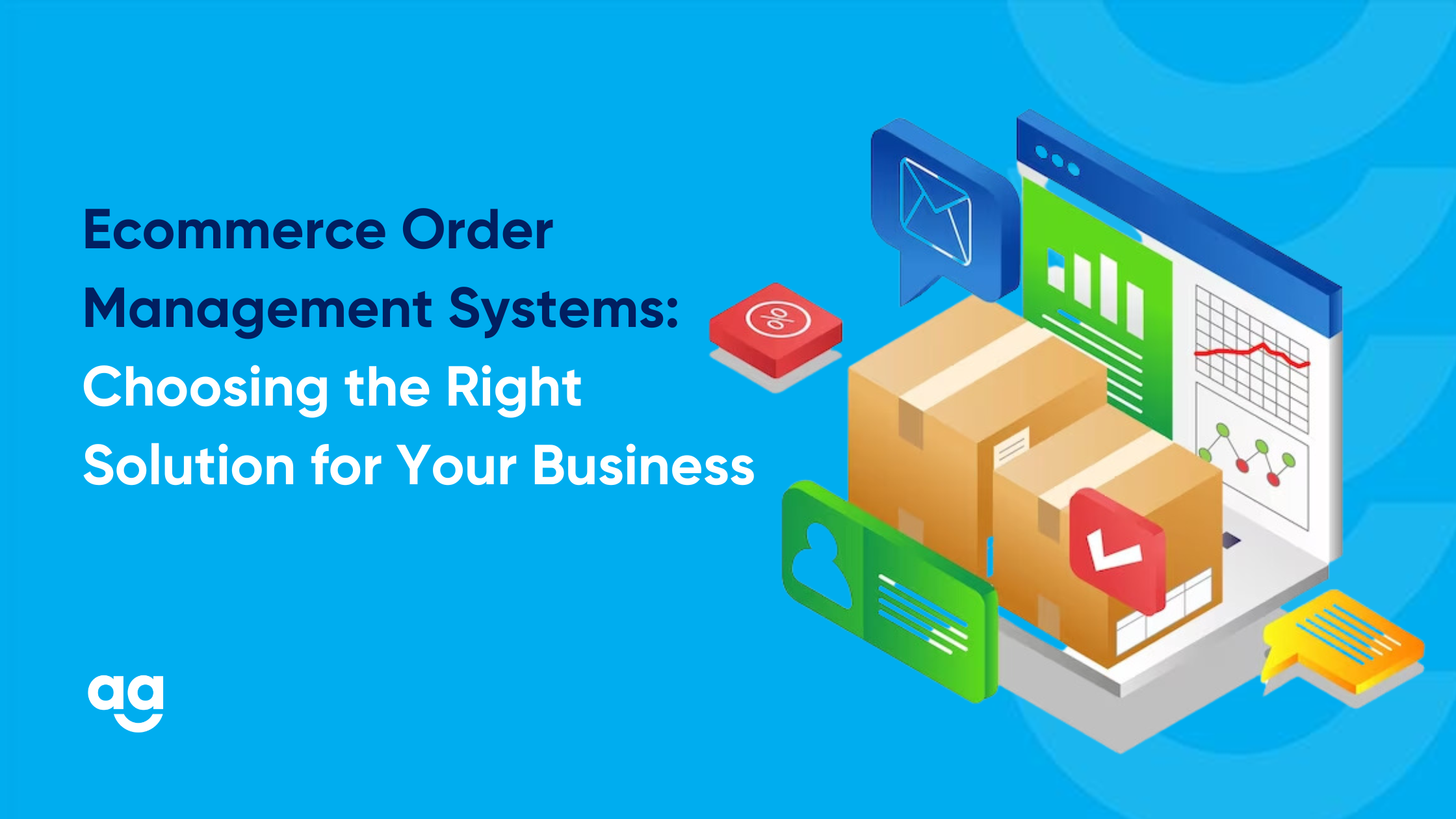Introduction
Order management is very essential for businesses as they expand and grow on a large scale. It helps in seamless operations and better customer satisfaction. Ecommerce order management systems (ORM) play a very important role in streamlining your entire order process from the stage of purchase to fulfillment.
Today we will explore the importance OMS holds and help you select the correct solution for your business.
Understanding the Role of Ecommerce Order Management Software
Order Management Systems or (OMS) are systems that are made to automate different stages of order processing. It handles various tasks such as capturing orders, inventory management, order routing, order tracking and customer communication.
A reliable OMS system ensures that orders are processed accurately, inventory is updated in real time, and customers receive timely updates on their order status.
5 Key Features and Functionalities of Ecommerce Order Management Systems
While you evaluate OMS, it is important to consider the key features that align with your business requirements. Some features include:
- 1. Capturing Orders: OMS helps capture from multiple sales channels for example – website and marketplace, in a centralized system.
- 2. Inventory management: OMS helps to keep a track of inventory in real-time to avoid overselling or stockouts.
- 3. Order routing and fulfillment: Automated order routing to the most appropriate warehouse or fulfillment center based on factors like inventory availability and proximity to the customer.
- 4. Order tracking and status updates: Providing customers with real-time updates on their order status and tracking information.
- 5. Customer communication: Automated notifications and personalized communication to keep customers informed about their orders.
Assessing Your Business Needs
Before you select any ecommerce order management system, make sure you know what is the need and goal of your business and consider the following factors:
1. Order volume
Keep a track of your daily orders in business and make sure that the chosen OMS system is handling your current and projected order volume without any hassles or performance issues.
2. Scalability
A good OMS system can really help you when your business is experiencing rapid growth because it can scale with your needs, accommodate increasing order volumes and expand sales channels.
3. Integration requirements
Check if your existing systems are compatible with the OMS system you have chosen and determine if it provides integration options with your current ecommerce platform, shipping carriers, payment gateways and other important tools.
4. Multichannel capabilities
If you are currently selling through multiple sales channels like your website and marketplaces, ensure your OMS system can effectively manage orders and provide a centralized order processing system.
5. Inventory management
Inventory tracking is very important and hence it’s important to determine whether your OMS system provides features like real-time inventory tracking, safety stock management and automated stock levels updates accurately.
6. Customer experience
Customer experience comes first if you want your customers to remember you and your brand and hence consider how the OMS system can enhance their experience by providing them with status updates, order tracking and personalized communication.
Cost Considerations and Return on Investment (ROI)
Evaluation of the cost and the potential investment is a must while integrating any new software in your business. Let’s look at some factors that should be considered:
Pricing structure
Understand the type of payment structure of the particular Order Management System. It can be based on various methods like subscription fee, transaction fees or can be a combination of both.
Implementation and setup costs
It is important to assess any upfront implementation or setup costs which could be involved in adopting the OMS, these could include costs of data migration,system integration and training expenses.
Potential ROI
Considering the potential ROI on investments is necessary when it comes to efficiency gains, reduced manual effort , improved customer satisfaction and the ability in which you can scale up your business.
Vendor Reputation and Support
When selecting an ecommerce order management system, vendor reputation and support are crucial factors.
Vendor experience
You have to know well about the vendor you’re dealing with , hence research about the vendor in terms of their reputation and industry experience which includes the track record in delivering reliable and scalable order management solutions.
Support and training
Evaluate the customer support which is provided by the vendor which includes access to technical support, training resources and documentation.
Conclusion
Selecting the correct OMS is very crucial for your business as it helps in better processings of orders, improving operational efficiency and leads to delivering an exceptional customer experience.
OMS helps you access your business needs which helps you make informed decisions and it’s your responsibility to choose an OMS system which helps and aligns with your business goals and helps your ecommerce business thrive.







 Shipping
Shipping







